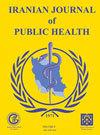胃癌的风险高度依赖于受癌症影响的一级家庭成员类型:来自伊朗高危人群的经验教训
IF 1.4
4区 医学
Q3 Medicine
引用次数: 0
摘要
背景:一级亲属中有胃癌家族史的患者发生胃癌的风险增高。本研究旨在评估一级亲属的胃癌家族史如何真正影响极高危人群的胃癌风险。 方法:对伊朗西北部高风险地区阿达比尔省1222例胃癌病例和1235例对照进行大规模人群病例-对照研究,评估一级亲属胃癌家族史与胃癌风险的关系(2003-2017)。结果:胃癌家族史与胃癌总体风险无显著相关性(ORadj=1.09, 95% CI: 0.80-1.47, P=0.589)。本研究未发现父母、父亲、母亲和姐妹分别有胃癌家族史与胃癌风险有显著关联。然而,胃癌风险与兄弟姐妹的胃癌史显著相关(ORadj=1.61, 95% CI: 1.11-2.35, P=0.013),尤其是兄弟姐妹(ORadj=2.24, 95% CI: 1.41-3.64, P=0.0008)。有两个或两个以上兄弟患病的受试者的风险大大增加(ORadj =5.56, 95% CI: 2.33-14.20, P=0.0002)。结论:我们没有发现贲门GC和非贲门GC的家族性倾向,也没有发现组织病理学特征。因此,确定与胃癌的一级关系的类型可能比单独评估家族史更重要,以预测该高危地区的胃癌风险。本文章由计算机程序翻译,如有差异,请以英文原文为准。
Risk of Gastric Cancer is Highly Dependent on Type of First-Degree Family Member Affected by Cancer: Lessons from a High-Risk Population in Iran
Background: Family history of gastric cancer (GC) in first-degree relatives may increase the risk of GC. This study aimed to assess how family history of GC in first-degree relatives really affects the risk of GC in an extremely high-risk population.
Methods: A large population-based case-control study was carried out on 1222 incident GC cases and 1235 controls in Ardabil Province-a high-risk area in North-West Iran-to assess the associations of GC family history in first-degree relatives with the risk of GC (2003-2017).
Results: GC family history did not significantly associate with the risk of GC overall (ORadj=1.09, 95% CI: 0.80–1.47, P=0.589). It found no significant association of GC family history in a parent, and in a father, mother, and sister separately, with the risk of GC. However, GC risk was significantly associated with a history of GC in a sibling (ORadj=1.61, 95% CI: 1.11–2.35, P=0.013), especially brother (ORadj=2.24, 95% CI: 1.41–3.64, P=0.0008). The risk was greatly increased in subjects with two or more affected brothers (ORadj =5.56, 95% CI: 2.33–14.20, P=0.0002).
Conclusion: We did not find a familial tendency to cardia GC and non-cardia GC as well as histopathologic features. Determining the type of first-degree relationships with GC may, therefore, be more important than assessing family history alone for predicting the risk of GC in this high-risk area.
求助全文
通过发布文献求助,成功后即可免费获取论文全文。
去求助
来源期刊

Iranian Journal of Public Health
医学-公共卫生、环境卫生与职业卫生
CiteScore
2.20
自引率
7.10%
发文量
0
审稿时长
2 months
期刊介绍:
Iranian Journal of Public Health has been continuously published since 1971, as the only Journal in all health domains, with wide distribution (including WHO in Geneva and Cairo) in two languages (English and Persian). From 2001 issue, the Journal is published only in English language. During the last 41 years more than 2000 scientific research papers, results of health activities, surveys and services, have been published in this Journal. To meet the increasing demand of respected researchers, as of January 2012, the Journal is published monthly. I wish this will assist to promote the level of global knowledge. The main topics that the Journal would welcome are: Bioethics, Disaster and Health, Entomology, Epidemiology, Health and Environment, Health Economics, Health Services, Immunology, Medical Genetics, Mental Health, Microbiology, Nutrition and Food Safety, Occupational Health, Oral Health. We would be very delighted to receive your Original papers, Review Articles, Short communications, Case reports and Scientific Letters to the Editor on the above mentioned research areas.
 求助内容:
求助内容: 应助结果提醒方式:
应助结果提醒方式:


